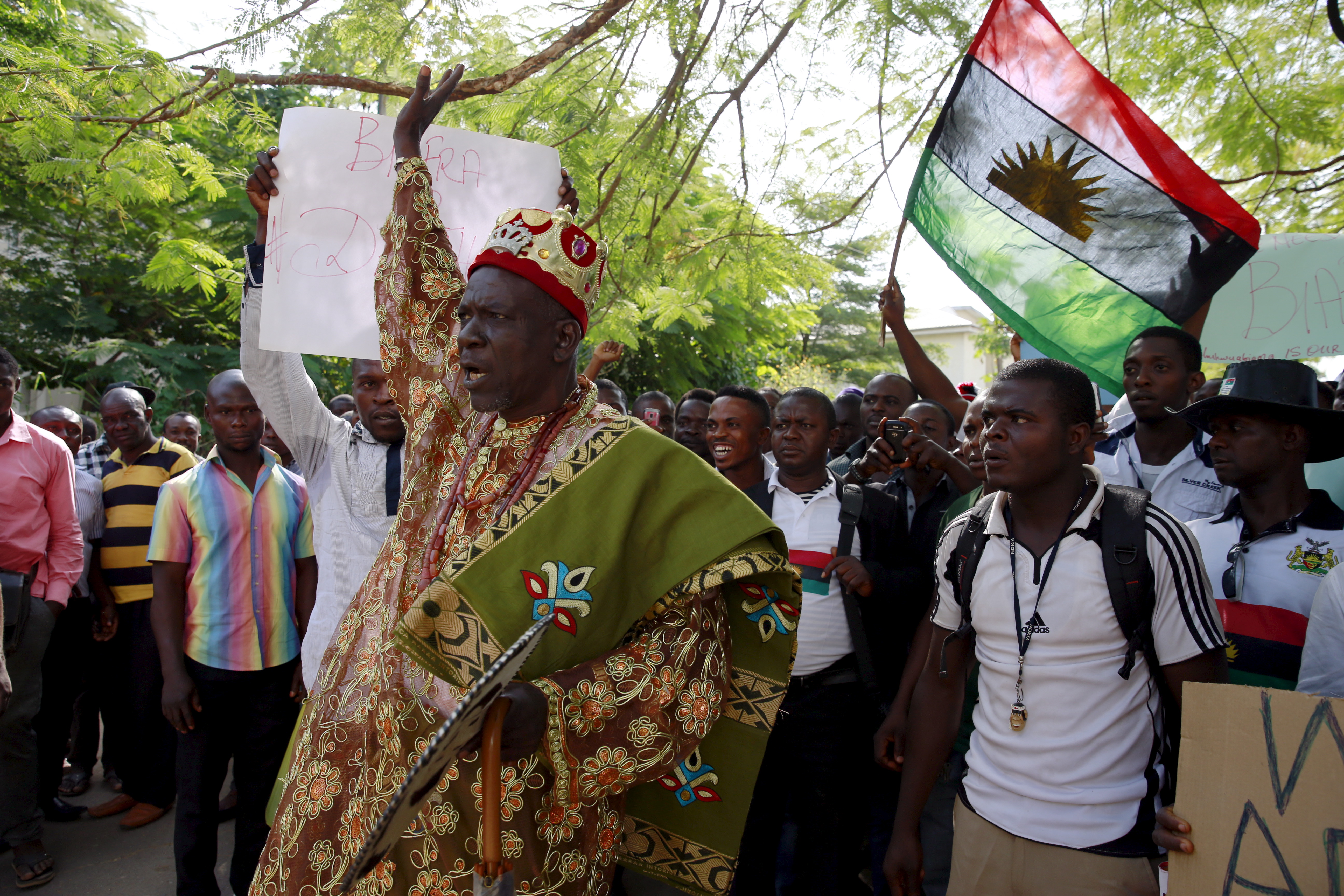Latest From Brookings
President Buhari’s health challenges have sparked intrigue in Nigeria and awakened the politics of succession, which revolve around an assumed power-sharing arrangement between the northern and the southern parts of the country. This intrigue is reminiscent of what happened when former President Umaru Musa Yar’adua (of the north) died before completing his term and was eventually succeeded by Goodluck Jonathan, a southerner.
The north-south flare-up occasioned by Buhari’s illness comes amid increasing agitations for the independence of the Republic of Biafra by mostly Igbo groups from the eastern part of the country. Energy around the movement has been growing. For example, Nnamdi Kanu, the leader of one of the Biafran separatist groups, the Indigenous Peoples of Biafra (IPOB) was detained for nearly two years on several charges that included treason and operating a pirate radio, Radio Biafra. He was refused bail, despite several court rulings granting him bail. His prolonged incarceration turned him into a cult figure among his followers.
Agitations around Biafra have drowned out other separatist agitations, giving the wrong impression that Biafra is the only separatist threat in the country. The truth is that there is separatist agitation in virtually every area in the country—underlying the fact that the foundation for Nigeria’s nationhood remains on shaky ground. Among the Yoruba, for instance, echoes of separatism come in different forms—from a direct call for Oduduwa Republic to those championing a Sovereign National Conference to decide if the federating units of the country still want to continue to live together, and, if so, under what arrangements. In the north, there are intermittent demands for Arewa Republic, while some talk of the “north” as if it is “a country within a country.” In the Niger Delta, apart from the demand for Niger Delta Republic, shades of separatism are embedded in the demands for “resource ...
Read More
Wednesday, July 12, 2017
Separatist agitations in Nigeria: Causes and trajectories
Subscribe to:
Post Comments (Atom)
No comments:
Post a Comment
Note: Only a member of this blog may post a comment.